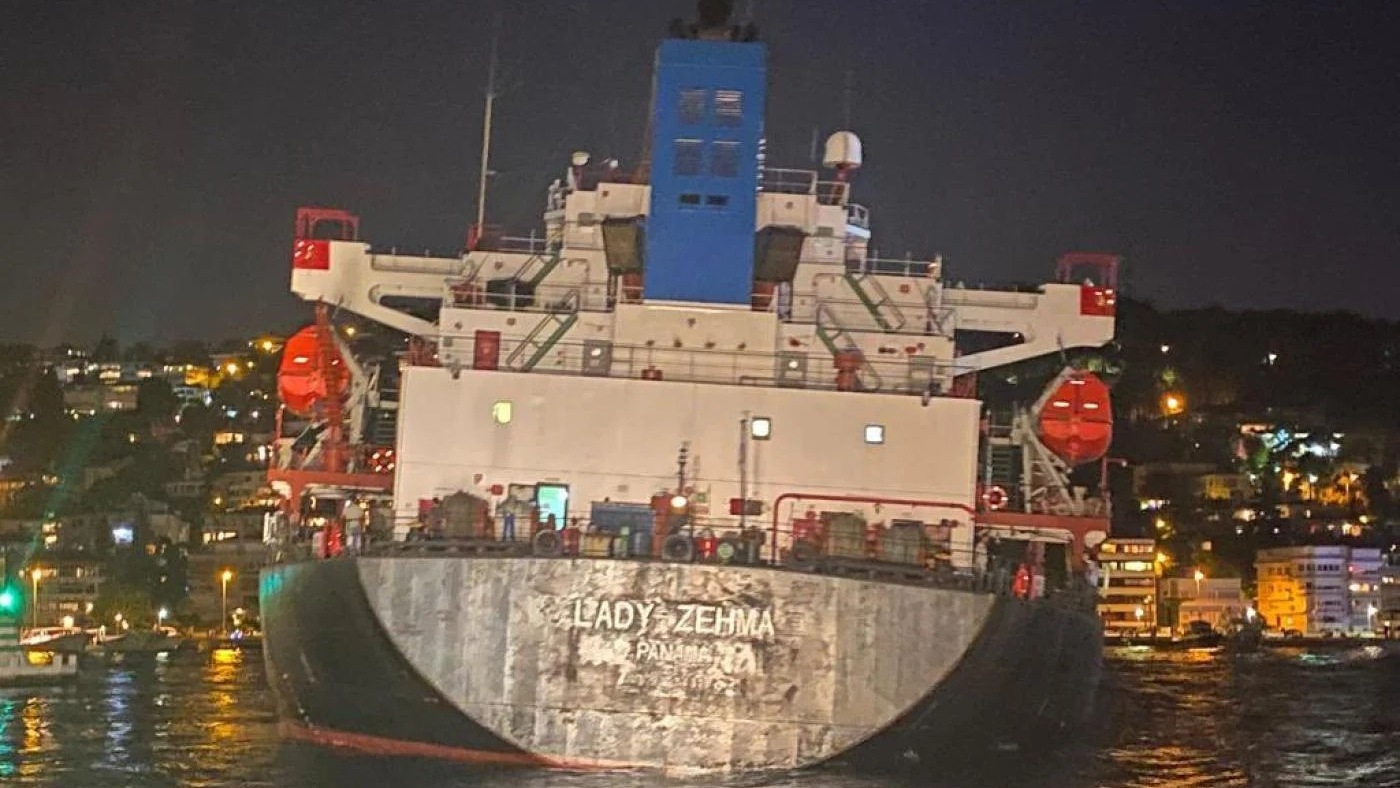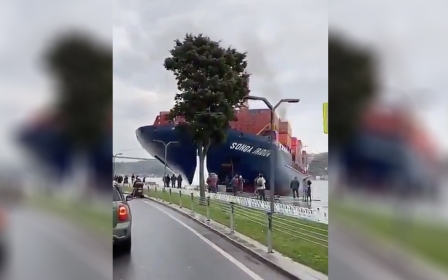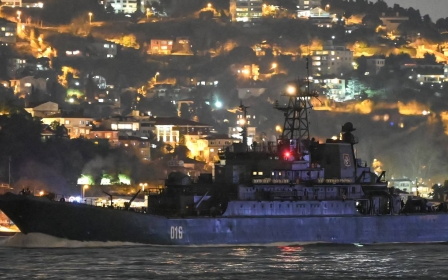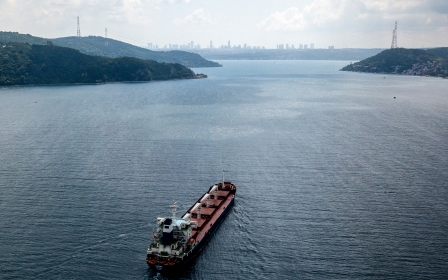Bosphorus Strait reopened after stranded grain ship from Ukraine towed free

A cargo vessel carrying more than 3,000 tonnes of corn from Ukraine was towed to anchorage in Istanbul on Friday after it collided with another vessel and briefly ran aground, the first such incident under a United Nations-brokered export deal.
Turkish state broadcaster TRT Haber said traffic in the Bosphorus Strait had been reopened after it was halted due to the grounding of the 173-metre Lady Zehma due to a rudder failure around 9pm (18.00 GMT).
The Tribeca shipping agency said the towage and salvage operation of Lady Zehma started at 12.10am and it dropped anchor at the southern Bosphorus anchorage area at 2.30am.
No one was hurt in the incident, the Istanbul governor's office said.
During the grounding, the ship's bow had been about 150 metres from the shore near Bebek.
New MEE newsletter: Jerusalem Dispatch
Sign up to get the latest insights and analysis on Israel-Palestine, alongside Turkey Unpacked and other MEE newsletters
Shipping data showed the vessel was at anchor in the Marmara Sea, just off the coast of Istanbul, on Friday morning.
'These things happen'
Ship traffic on the Bosphorus Strait, one of the busiest waterways in the world, had been suspended on Thursday evening
In a statement following the grounding, the Directorate General of Coastal Safety in Turkey said it had dispatched several tug boats to rescue the vessel.
'The Bosphorus management is one of the most professionally managed in all steps, pre-planning, foreseeing what can happen - it is extremely well managed'
- Yoruk Isik, Bosphorus naval observer
Yoruk Isik, a long-time naval Bosphorus observer on the scene, told MEE: "The accident is serious and it will attract attention."
Isik pointed out many people would have observed the incident because it happened "in Bebek, where there is a very vibrant nightlife".
Online footage from bystanders captured the moment the ship lost control, with the vessel sounding its foghorn as it hit a smaller vessel.
"These things happen. It's a shipping lane. The question is whether you are ready for the accidents or not. That's what is important. We are prepared," said Isik.
The Bosphorus Strait connects the Black Sea to the Sea of Marmara, and is one of the world's busiest maritime passages. By some estimates, around 48,000 ships pass through the strait each year, which can be difficult to navigate in part due to the narrow width of some parts of the waterway.
"The Bosphorus management is one of the most professionally managed in all steps, pre-planning, foreseeing what can happen - it is extremely well managed," said Isik.
"It's a world-class operation. I would also say that there is a very high-quality staff overseeing this rescue operation."
Past accidents
The last major accident on the Bosphorus was in 2019 when a Liberian-flagged cargo ship ran off course and collided with Istanbul's coast, forcing Turkish authorities to close the waterway.
The Bosphorus is one of the world's most important choke points for maritime oil transports, with more than three percent of global supply - mainly from Russia and the Caspian Sea - passing through the 27-kilometre waterway.
In the past Turkish President Recep Tayyip Erdogan has called for a new canal to be built that would ease traffic on the Bosphorus shipping route.
He first mentioned the idea in 2011, dubbing it his "crazy project". But a currency crisis in 2018 prompted Turkey to freeze investments in large projects.
Kanal Istanbul has returned to the president's agenda periodically, however, ground has yet to be broken on the idea.
The 400-metre-wide canal planned to the west of Istanbul would connect the Black Sea in the north to the Sea of Marmara, which eventually runs into the Mediterranean.
Middle East Eye delivers independent and unrivalled coverage and analysis of the Middle East, North Africa and beyond. To learn more about republishing this content and the associated fees, please fill out this form. More about MEE can be found here.




